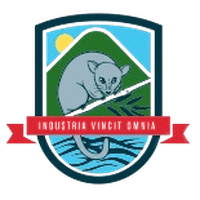
How do I become a bore runner?
Certificate II in Agriculture
- There are no mandated entry requirements.








Certificate III in Rural Operations
- There are no mandated entry requirements.







Certificate III in Agriculture
- There are no mandated entry requirements.








Related occupations
Farmhand
A Farmhand performs varied tasks like feeding livestock, operating machinery, maintaining equipment, and assisting with crop care in all weather.
Station Hand
A Station Hand performs daily tasks on agricultural properties, which may include mustering livestock, fixing fences, and operating machinery.
Piggery Attendant
A Piggery Attendant manages daily operations by caring for pigs, maintaining their environment, and assisting with breeding and transport.
Organic Farmer
Organic Farmers grow crops and raise livestock without chemicals, managing daily tasks like planting, harvesting, and equipment maintenance.
Farm Manager
A Farm Manager oversees farm operations, making strategic decisions, managing staff, ensuring compliance, and handling administration tasks.
Station Manager
Station Managers oversee cattle stations, ensuring productivity, profitability, and compliance with regulations while managing a team and performing various tasks.
Dairy Farm Manager
A Dairy Farm Manager oversees cattle health, pasture preparation, milking, equipment maintenance, and milk sales, requiring animal handling and management skills.
Agribusiness Manager
An Agribusiness Manager oversees operations of a farm or agricultural business, focusing on marketing, accounting, and profitability strategies.
Poultry Farm Worker
A Poultry Farm Worker performs daily tasks on a poultry farm, including feeding, monitoring health, collecting eggs, and maintaining cleanliness.
Livestock Transporter
A Livestock Transporter moves animals between locations, ensures animal welfare, drives heavy vehicles, and handles loading and unloading tasks.
Sheep Shearer
A Sheep Shearer removes wool using shearing equipment, handling animals while ensuring their health and working long hours in a physically demanding role.
Sheep Shearing Trainer
A Sheep Shearing Trainer supervises shearers, training them in skills, animal handling, and equipment use while ensuring industry standards are met.
Wool Worker
A Wool Worker ensures smooth operations in a shearing shed, preparing sheep for shearing, assisting with wool classing, and maintaining equipment.
Wool Classer
A Wool Classer appraises and sorts wool based on quality for market sale, requiring attention to detail, physical fitness, and teamwork.
Stock and Station Agent
A Stock and Station Agent sells agricultural products and properties, appraising items, sourcing buyers, and facilitating sales processes.
Pen Rider
A Pen Rider moves cattle, monitors health, assists with transport, and maintains safety, using strong animal handling and teamwork skills.
Common questions
How much does a Bore Runner earn?
In Australia, a full time Bore Runner generally earns $960 per week ($49,920 annual salary) before tax. This is a median figure for full-time employees and should be considered a guide only. As you gain more experience you can expect a potentially higher salary than people who are new to the industry.
What are the job opportunities for a Bore Runner?
While there are 31,500 people working as livestock farm workers in Australia, only a small percentage of them are working as Bore Runners. The number of people working in this industry should increase slightly over the next five years. If you want to work as a Bore Runner you’ll need to live on a cattle station in a remote area of Australia.
Source: The Labour Market Information Portal – 2019 Occupation Projections
How do I become a Bore Runner?
Becoming a Bore Runner will require on-the-job training and this is included in the Certificate III in Rural Operations. This 12 month course will cover everything you need to know about working on a large agricultural property.
Further reading


Careers for people who love the outdoors
14th September 2021)

